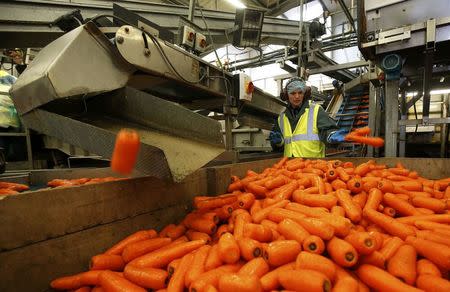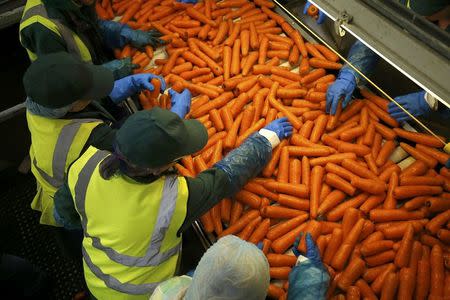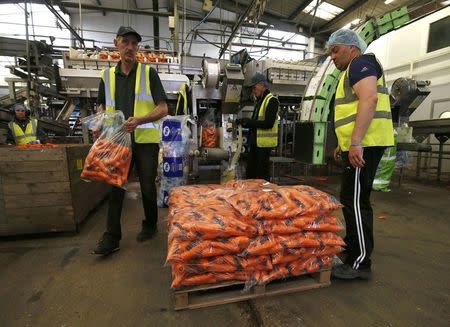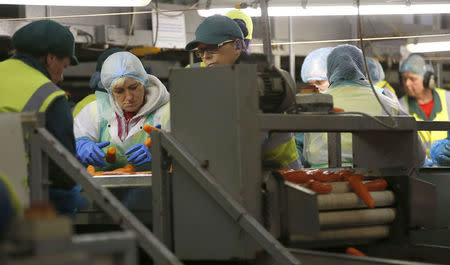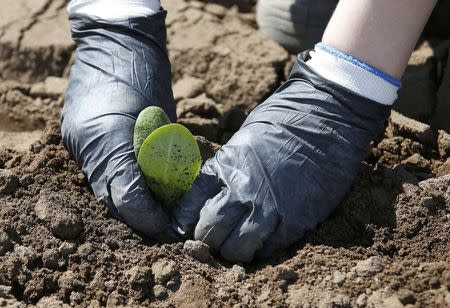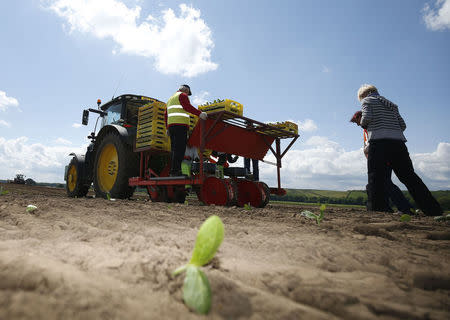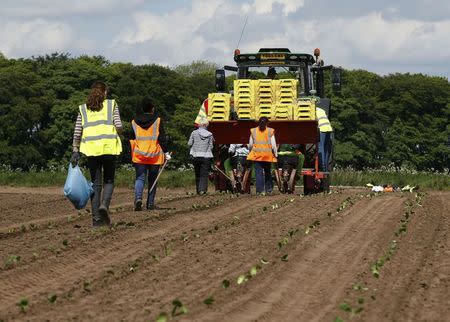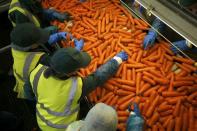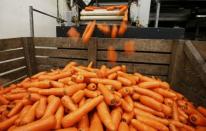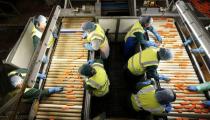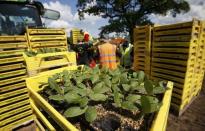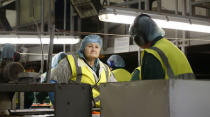Who will pick the carrots if Brexit stops migration?
By David Milliken KELLINGTON, England (Reuters) - As farmer Guy Poskitt looks across a field of pumpkin seedlings, he worries how he will get them planted and picked in future if Britain votes next month to leave the European Union and closes the door on migrant workers. Health and safety notices in Polish and Russian as well as English are posted around his farm and a vegetable packing plant full of clattering conveyor belts of carrots. The vast bulk of Poskitt's workers are from Poland or the Baltic states. "I cannot run my business without migrant workers," Poskitt said after a team at his Yorkshire farm had finished planting thousands of seedlings which will grow and ripen in time for Halloween. Poskitt's farm - a supplier of vegetables to British supermarkets and caterers - is typical of many businesses in agriculture, hospitality and construction who rely heavily on low-skilled, low-paid workers from poorer parts of the EU to staff long shifts, often at anti-social hours. The demographics vary. On a recent workday, older women in plastic hair nets sorted through thousands of carrots, while younger ones walked behind tractors checking that pumpkin seedlings had been planted correctly. Such workers are a major factor in Britain's June 23 referendum on staying in the EU, where laws mandate freedom of movement. Official figures released on Thursday showed a record 184,000 people moved to Britain from the EU last year. Over a million have settled over the past decade. Concerns about the impact of such migration on public services and wages has been behind much of the support for leaving the EU, which is either lagging the "Remain" campaign or neck-and-neck depending on which poll is used. TOUGH CHOICE If Britain does vote to leave, its politicians will face a tough choice - either to disappoint Britons hoping for a sharp curb to migration or force firms to rethink their business. Farm workers would struggle to qualify under any skills-based schemes favoured by some 'Leave' campaigners, leaving Poskitt worried about how he would cope. Some of his workers are also concerned. "We don't know what it will bring to us," said Estonian Marika Rudik-Mis, an office administrator at the farm whose first job in Britain in 2002 was picking mushrooms. She reckons leaving the EU, would not affect her much directly, but is still concerned about the broader impact. "If (Britain) were to leave the EU, it would shut the gate for east Europeans, so it is a worry." A study by the NIESR research institute found that if EU migrants were barred from unskilled work, taxes would in the long run rise by 400 pounds ($588) per person each year, partly due to an ageing British population. The impact for some businesses would be much bigger. Tatjana Perminova, a Latvian who started picking vegetables in 2005 and is now personnel manager on Poskitt's farm, said it would be hard to find Britons willing to do the most basic jobs. "There are not a lot of people who want to do Saturday or Sunday," she said. "You have to stand all day. It is wet, cold." (Editing by Jeremy Gaunt)

 Yahoo News
Yahoo News 